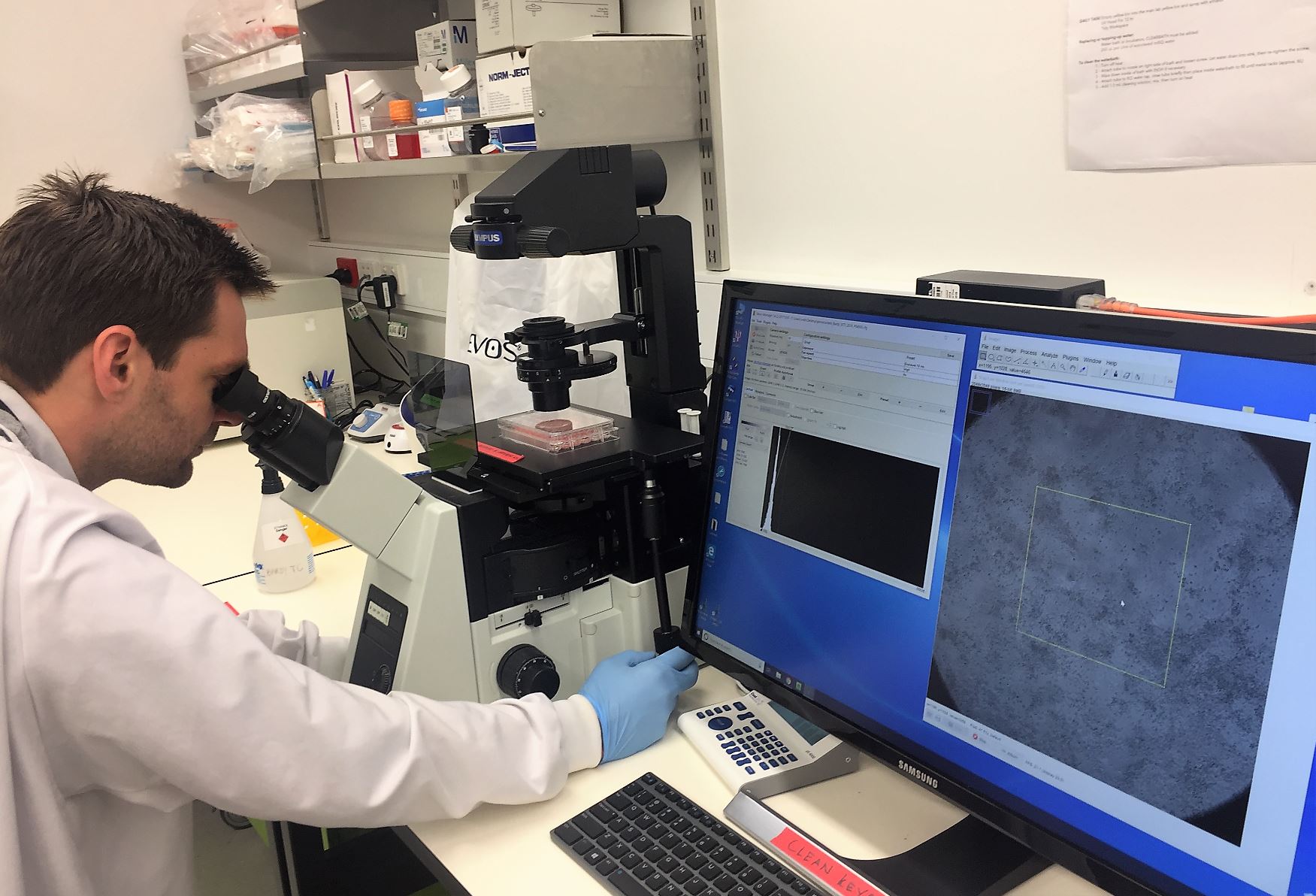
A new Australian Government grant will help Flinders University and other partners make inroads into understanding and treating a devastating childhood metabolic disorder Sanfilippo syndrome, which cases childhood-onset dementia.
The Medical Research Future Fund $729,962.89 ‘Stem Cell Therapies Mission’ grant, ‘Pre-clinical iPSC-neuron screen of repurposed drugs for children with a form of dementia’ was among seven new Flinders University-led MRFF research projects announced earlier this month.
Sanfilippo syndrome is characterised by a problem with one of the chemical reactions that naturally occurs in the body, caused by a lack of an enzyme that normally breaks down and recycles a large, complex sugar molecule.
Over time the disease causes brain cells to fill up with waste that the body is unable to process, causing severe hyperactivity, disordered sleep, loss of speech, cognitive decline, cardiac issues, seizures, loss of mobility and finally death, usually before adulthood.
“This funding is critical for our mission to find effective treatments for childhood-onset dementia. We are working extremely hard to make a breakthrough and help improve the quality of life for the children and families living with this horrific disease,” says Flinders University Associate Professor Cedric Bardy, who is leading the new project at his SAHMRI laboratory.
Kerren Hosking, CEO of the Sanfilippo Children’s Foundation which is the key partner in the research, says the project offers much needed hope for the future.
“This project has great potential to identify treatments that might slow down disease progression and improve quality of life for children living with Sanfilippo syndrome. We’re excited to see this excellent research continue to progress,” Ms Hosking says.
Most children with Sanfilippo syndrome aren’t diagnosed until they are between four and six years of age, when the disease has already done considerable damage to the brain.
For this reason, early diagnosis through newborn screening is critical, as is the need for treatments that can target some of the most distressing and challenging symptoms to improve the quality of life for children and their families.
“There is an urgent unmet need to identify a treatment that can alleviate the symptoms of Sanfilippo syndrome. After intense research efforts, we can now, for the first time, test the efficacy of hundreds of drugs in brain cell avatars from kids without putting them at risk,” says Associate Professor Bardy, who will work on the project with experts including Flinders University Professor Kim Hemsley, Dr Nicholas Smith from the Women’s and Children’s Hospital, and University off Adelaide brain pharmacology specialist Professor Mark Hutchinson.
The ‘Brain in a Dish’ project, led by the Bardy Lab, began in July 2019 and has been working to grow brain cells in the lab from children with Sanfilippo Syndrome.
Researchers are comparing the appearance and function of the Sanfilippo cells, to cells from healthy children and using them to screen a panel of already available drugs to identify potentially effective therapies.
“We’re excited to take this project to the next stage with the new MRFF Stem Cell Mission support. We hope to repurpose drugs initially designed for more common adult dementia and neurodegenerative disorders. If our strategy works, we will rapidly translate this breakthrough into a clinical trial and provide some relief to the families affected.”
The Brain in a Dish platform was established through a previous $2 million MRFF grant to the Sanfilippo Children’s Foundation and the research team.

